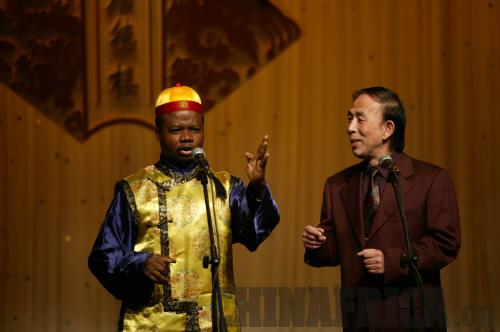|
 |
|
COURTESY OF FRANCIS TCHIEGUE |
Crosstalk is difficult even for most native speakers. What drew you to xiangsheng?
My progress in learning Chinese was so slow, and I wanted to find a trick to get through the language. I came across Da Shan [a Chinese-speaking Canadian] on TV. That was the first time I saw a foreigner speaking so fluently. There is no accent in the way he speaks. I was really astonished [and] went to find his teacher. That's how I came across crosstalk.
What's it like to study with Da Shan's teacher, artist Ding Guangquan?
He's not just teaching me crosstalk. He is my crosstalk teacher, but first of all, he is a good friend. I've learned many other things from him - Chinese life, culture and ways of thinking. When we go to Chinese provinces to perform, usually after dinners, we chat and discuss the local history and culture. Learning this background and local dialects helps me in my crosstalk studies.
I did my very first crosstalk in Chaozhou in south China's Guangdong Province. I had to recite a Chinese poem about eight sentences long. I could say it fast, but my teacher required me to speak slowly. A poem cannot be recited fast, you have to respect the [rhythm]. It's hard for me to speak slowly. The more I slow down, the easier it is to forget the words. It was a challenge.
|